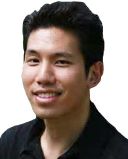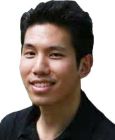Intelligence
A Polymath Physicist on Richard Feynman's "Low" IQ and Finding Another Einstein
A conversation with Steve Hsu.
Posted December 26, 2011 Reviewed by Ekua Hagan
Steve Hsu is a professor of physics at the University of Oregon. He holds degrees from Caltech and Berkeley and his research interests range from theoretical physics and information technology to the theory of modern finance, genetics, education, intelligence, and psychometrics. In addition, he has co-founded the companies SafeWeb and Robot Genius, holds multiple patents, and has over 100 publications. For example, one of his latest papers is titled "On the origin of probability in quantum mechanics." Steve also has two kids.
I encountered Steve by sending him an email to ask a question about one of his papers. After a few rapid-fire email exchanges, I found myself on the phone with him for over an hour the very next day discussing topics as wide-ranging as his interests.
He's one of the first people I have met that I would definitely consider a polymath, in that his expertise spans multiple disciplines (including my own). After our talk, I sent him some questions. We covered everything from physics and Richard Feynman's supposedly "low" IQ to his latest research in intelligence. Finally, I asked him if he thought we would ever find another Einstein.
In a nutshell, tell me what your physics research is about.
I'm interested in the basic constituents of nature ("fundamental particles") and the rules that govern their interactions ("quantum field theory" or "quantum gravity"). My work involves things like quarks, black holes, the big bang, and quantum mechanics.
What led you to pursue physics? Tell me about your scientific heroes.
I had a natural attraction to the subject: It attempts to describe the universe with mathematical precision, yet in order to do so, it has to grapple with conceptually difficult and ill-defined ideas like causality and space and time.
My scientific hero since when I was in high school was Richard Feynman. What I liked most about Feynman was his unlimited curiosity and willingness to pursue problems wherever they lead. He was also a very down-to-earth person. I was lucky enough to attend Caltech while he was still on campus.
Is it true Feynman's IQ score was only 125?
Feynman was universally regarded as one of the fastest-thinking and most creative theorists in his generation. Yet, it has been reported-including by Feynman himself-that he only obtained a score of 125 on a school IQ test.
I suspect that this test emphasized verbal, as opposed to mathematical, ability. Feynman received the highest score in the country by a large margin on the notoriously difficult Putnam mathematics competition exam, although he joined the MIT team on short notice and did not prepare for the test. He also reportedly had the highest scores on record on the math/physics graduate admission exams at Princeton.
It seems quite possible to me that Feynman's cognitive abilities might have been a bit lopsided — his vocabulary and verbal ability were well above average, but perhaps not as great as his mathematical abilities.
I recall looking at excerpts from a notebook Feynman kept while an undergraduate. While the notes covered very advanced topics for an undergraduate — including general relativity and the Dirac equation — it also contained a number of misspellings and grammatical errors. I doubt Feynman cared very much about such things.
So I understand that you also have interests in finance and business as well as education, intelligence, and psychometrics. How do you feel all of these areas are interconnected? What are your experiences like communicating with groups from these diverse intellectual cultures?
I guess the unifying theme is knowledge versus uncertainty: the attempt to capture the essential aspects of a messy system in a simplified mathematical model. Such models have their limitations, of course, but can be very powerful in predicting the behaviors of markets or people.
I found it enormously educational to run a startup in Silicon Valley. I had to deal with engineers, venture capitalists, salespeople, attorneys. When I came back to the classroom, I found the experience had improved my ability to simplify a subject to its essentials and to communicate with people from diverse backgrounds.
How did you develop an interest in education, intelligence, and psychometrics, and what kinds of projects are you working on in these areas right now?
In theoretical physics you meet some very special brains. It's very hard to avoid wondering what makes some people cognitively special. I'm currently investigating this on a genetic level. With BGI, one of the largest genomics labs in the world, I'm involved in a project to genotype thousands of individuals of exceptional cognitive ability. We hope to determine which genetic variations have a direct impact on cognition.
It's unusual for a physicist to be able to communicate complex ideas to the public, but I think you do it very well. Tell me more about your blog Information Processing. What kind of audience do you write for and why do you write?
I've been writing the blog since 2004. The topics covered are quite diverse, ranging from physics to finance and economics to genetics and psychometrics. Many of my readers are scientists or former scientists working in technology or finance.
The title is a caricature of what I seem to be doing all the time: taking in information from diverse sources, processing it to extract the key insights, and then trying to share those insights with anyone who will listen.
Were you identified as gifted? If so, how and when? Were there specific educational experiences that were important in your development? What are your thoughts on gifted education? And finally, now that you have kids, what are your thoughts on the best ways to educate them?
When I was a kid, I sort of knew I was different from other kids. I remember some tests (Iowa Test of Educational Development) we were given in grade school that had multiple (perhaps 4? I can't recall) sections, such as math, reading, vocabulary, etc., and a 99th percentile ceiling. When my scores came back as all 99s, I wondered how common this score was — do only (.01)*(.01)*(.01)*(.01) kids (1 in 100 million) achieve this, or are there correlations between the scores? (I didn't really know what a correlation was at the time, but the basic idea stuck in my head.)
Eventually, I ended up at the local university library and started reading books on psychometrics, the g factor (which is an attempt to get at the correlations between different cognitive abilities), the Terman study of gifted individuals. Since then I've been quite interested in cognitive ability, intelligence, and related topics.
The project with BGI I described above is something I've been thinking about since childhood — I'm just glad the technology finally arrived to pursue the answers.
I had several key experiences growing up. One was discovering another similarly talented kid in my town whose parents were also professors. He ended up doing a Ph.D. in math at MIT. Another was spending time with a math professor who lived a few blocks from us. He was a gifted teacher and expositor, and I learned a great deal from him. I started taking college courses when I was 12 and by the time I finished high school at 16 I had already taken some advanced courses, such as quantum mechanics, complex analysis, etc.
I'm very interested in my kids' intellectual development. If they turn out to be gifted, I want to make sure they have educational opportunities that will let them reach their full potential. Gifted kids can experience terrible boredom and feelings of isolation.
You've chosen to pursue multiple areas of interest and have been very successful. However, we all have only 24 hours in a day with other life commitments and energy limitations. What would be your advice to an aspiring scientist on how to manage their time? What about on how to choose the right scientific questions to pursue?
I'm not sure I'm the best person to be giving advice, as most people would tell me my interests are too scattered and that these days it's necessary to specialize in order to succeed as a researcher. But on the other hand, I've realized over the years that I do much better work when I'm really excited about what I'm doing. So it's always a balance between doing what I "should be" doing, and what I am really interested in.
I do think that years of hard work do pay off — a small difference in effort between you and your competitors can, over time, develop into a qualitative difference in accomplishment or in capabilities.
Do you think we will ever find another Einstein?
This is a very difficult question. Einstein was special for many reasons and was the dominant figure in 20th-century physics, if not all of science.
In the modern era, many more people have access to advanced education — think of India and China plus all of the developed world. While I believe even an average scientist these days is quite an exceptional person, both in terms of ability and the amount of training he or she has received, it is much more difficult now to stand out in the crowd.
Think of the NBA: The average player today is much better than the average player of 50 years ago. Any guard in the league is an athletic freak of nature. But when they play against each other they are relatively evenly matched. It may be a long time before we encounter another giant like Einstein who so far surpasses his contemporaries.
© 2011 by Jonathan Wai
You can follow me on Twitter, Facebook, or G+. For more of Finding the Next Einstein: Why Smart Is Relative, go here.




